Heinrich Rehkemper (born 1894, died 1949) was a German baritone singer whose repertoire was in opera and Lieder, and whose career was principally in Germany between the First and Second World War. The greater part of his career was spent as leading baritone at the Munich opera house.
Rehkemper studied at Düsseldorf, and made his debut in opera in Die Faschingsfee by Emmerich Kálmán in 1919, at Coburg. Over the next two years he also sang there in Nicolai's Die lustigen Weiber von Windsor , in Lohengrin , Carmen and Cavalleria rusticana . From 1921 to 1924 he was engaged at the Stuttgart opera, and during the first three years of this time he sang over forty different lead roles. At the end of three years he broke his contract, and was therefore legally forbidden to make stage appearances for the final year. In that time he began to develop his concert repertoire and persona. He gave recitals of songs by Schubert, Schumann, Wolf and Mahler: he also took the baritone solo role in a performance of Beethoven's 9th Symphony, and in J. S. Bach's St. John Passion in a performance at Vienna.
In 1925, he returned to the operatic stage, joining the Munich opera house company, where Hans Knappertsbusch was taking over direction from Bruno Walter. The leading baritone Friedrich Brodersen found a successor in Rehkemper, who remained at Munich for the next eighteen years. His operatic repertoire was extensive. He played Mozart's Papageno, both the Conte and Figaro, Guglielmo and Don Giovanni; Wagner's Amfortas, Beckmesser and Donner; Verdi's Macbeth, Posa and Don Carlo; Puccini's Marcello and Michele; and Malatesta in Don Pasquale . In the German repertoire he had roles in Pfitzner's Palestrina and Das Herz; Schultze's Schwarzer Peter; Eugen d'Albert's Tiefland , Goetze's Widerspenstigen Zähmung, Jokanaan in Richard Strauss's Salome, and others. He seldom sang outside Germany, but he made guest appearances at other centres such as Berlin, Bremen, Darmstadt and Cologne. After the Munich opera house was bombed in a 1943 air-raid, his connection with it came to an end.
Rehkemper also had a wide repertoire of Lieder, notably songs by Schumann, Schubert, Hugo Wolf, Grieg, Richard Strauss and the Austrian composer Siegmund von Hausegger. In 1931 he gave a recital of Strauss Lieder at Munich with the composer as pianist. He performed song-cycles, notably Winterreise , von Hausegger's Hymns to the Night, and Mahler's Lieder eines fahrenden Gesellen and Kindertotenlieder , the latter being preserved in an effective recording.
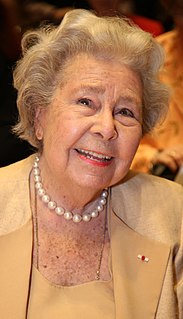
Christa Ludwig is a retired German dramatic mezzo-soprano, distinguished for her performances of opera, Lieder, oratorio, and other major religious works like masses and passions, and solos contained in symphonic literature. Her career spanned from the late 1940s until the early 1990s. She is widely recognised as one of the most significant and distinguished singers of the 20th century, "with a voice of exquisite richness and, when needed - breathtaking amplitude."

Dietrich Fischer-Dieskau was a German lyric baritone and conductor of classical music, one of the most famous Lieder performers of the post-war period, best known as a singer of Franz Schubert's Lieder, particularly "Winterreise" of which his recordings with accompanist Gerald Moore and Jörg Demus are still critically acclaimed half a century after their release.

Anne Sofie von Otter is a Swedish mezzo-soprano. Her repertoire encompasses lieder, operas, oratorios and also rock and pop songs.
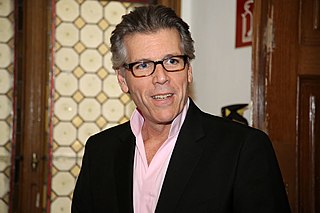
Thomas Walter Hampson is an American lyric baritone, a classical singer who has appeared world-wide in major opera houses and concert halls and made over 170 musical recordings.

Matthias Goerne is a German baritone.

Friedrich "Fritz" Karl Otto Wunderlich was a German lyric tenor, famed for his singing of the Mozart repertory and various lieder. He died in an accident aged 35.
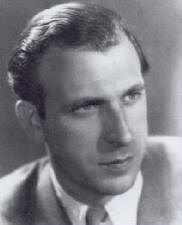
Hans Hotter was a German operatic bass-baritone. He stood 6 ft 4 in and his appearance was striking. His voice and diction were equally recognisable.
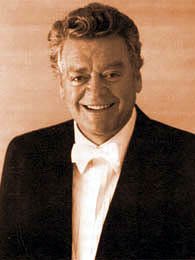
Hermann Prey was a German lyric baritone, who was equally at home in the Lied, operatic and concert repertoires. His American debut was in November 1952, with the Philadelphia Orchestra and Eugene Ormandy, and his American recital debut took place in 1956, at New York's Carnegie Hall. As a Lieder singer, he was a gifted interpreter of Schubert, including his song-cycles Die schöne Müllerin and Die Winterreise and the collection of songs Schwanengesang, as well as of Robert Schumann, Richard Strauss and Gustav Mahler. He also appeared frequently as a soloist in Bach's Passions and Brahms' A German Requiem.

Edda Moser is a German operatic soprano. She was particularly well known for her interpretations of music by Mozart. Her 1973 recital LP Virtuose Arien von W.A. Mozart received the Grand Prix du Disque.

Nils Olov Håkan Hagegård is a Swedish operatic baritone. He also performs lieder and has held academic positions in the United States, Norway, and Sweden.

Cheryl Studer is an American dramatic soprano who has sung at many of the world's foremost opera houses. Studer has performed more than eighty roles ranging from the dramatic repertoire to roles more commonly associated with lyric sopranos and coloratura sopranos, and, in her late stage, mezzo-sopranos. She is particularly known for her interpretations of the works of Richard Strauss and Richard Wagner.
Gerhard Heinrich Wilhelm Fritz Hüsch was one of the most important German singers of modern times. A lyric baritone, he specialized in Lieder but also sang, to a lesser extent, German and Italian opera.
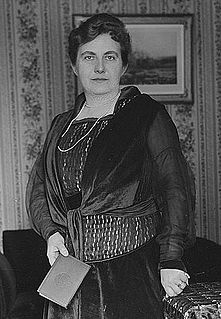
Elena Gerhardt was a German mezzo-soprano singer associated with the singing of German classical lieder, of which she was considered one of the great interpreters. She left Germany for good to live in London in October 1934.
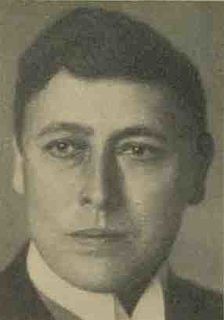
Karl Erb was a German tenor vocalist who made his career first in opera and then in oratorio and lieder recital. He excelled in all these genres, and before 1920 gave classic performances of key roles in modern works, and created lead roles in those of Hans Pfitzner. He was the first husband of Maria Ivogün and was considered by many the ideal Evangelist in the St Matthew Passion of Johann Sebastian Bach.
Wolfgang Holzmair is an Austrian baritone.
Helmut Kretschmar is a German classical tenor who spent most of his career performing in concerts and recitals with major orchestras and at important music festivals internationally. Although he focused his career mainly within the concert repertoire, Kretschmar did appear two times on the opera stage, notably singing in the world premiere of Arnold Schoenberg's Moses und Aron in 1954. Possessing a rich and warm lyric tenor voice, Kretschmar excelled in the concert repertoire of Johann Sebastian Bach, George Frideric Handel, Joseph Haydn, and Felix Mendelssohn. Also an admired interpreter of Lieder, Kretschmar performed and recorded a number of works by Franz Schubert, Robert Schumann, and Hugo Wolf.

Christian Gerhaher is a German baritone and bass singer in opera and concert, particularly known as a Lieder singer.
Daniel Behle is a German classical composer and operatic tenor. He has performed at international opera houses and festivals, and has recorded both operas and Lieder recitals.
Albert Dohmen is a German operatic bass-baritone who is known internationally for performing leading roles by Richard Wagner and Richard Strauss. He has also worked in concert halls and given lieder recitals.
Christiane Iven is a German lied, concert and opera singer as well as a vocal teacher at the Hochschule für Musik und Theater München.













